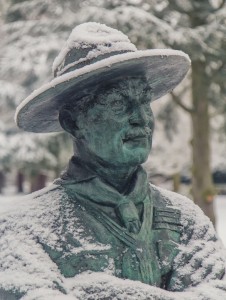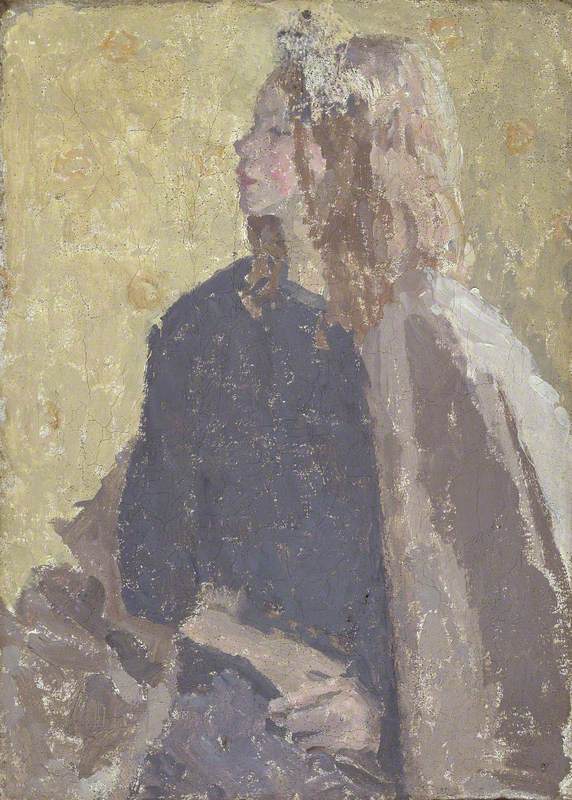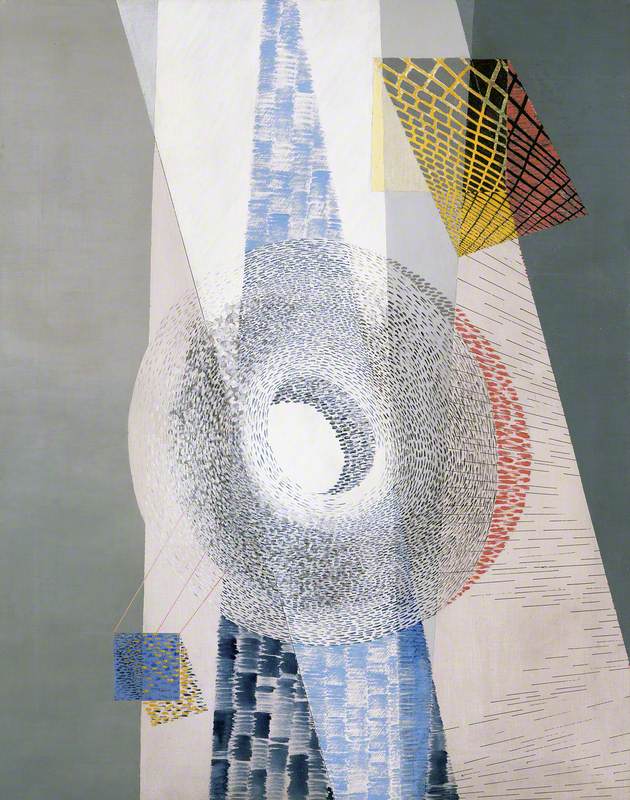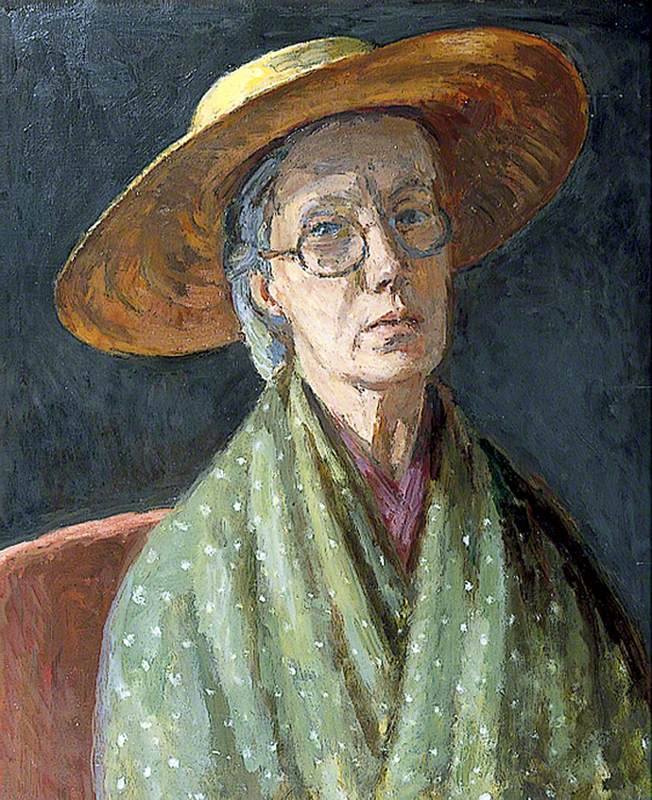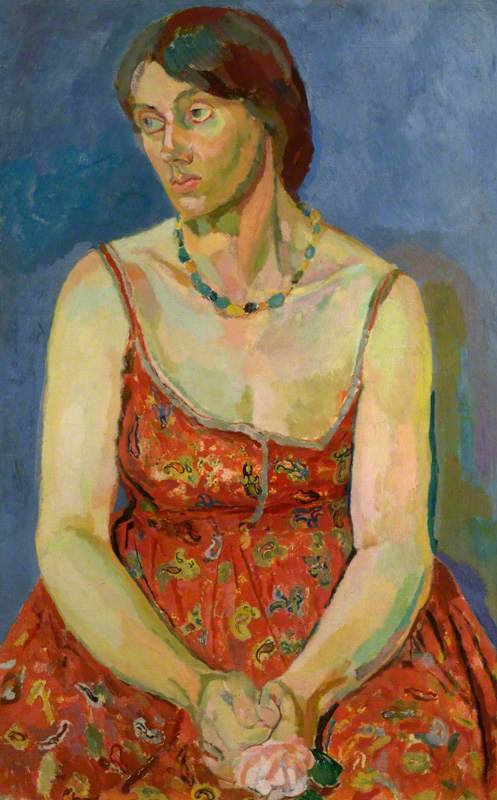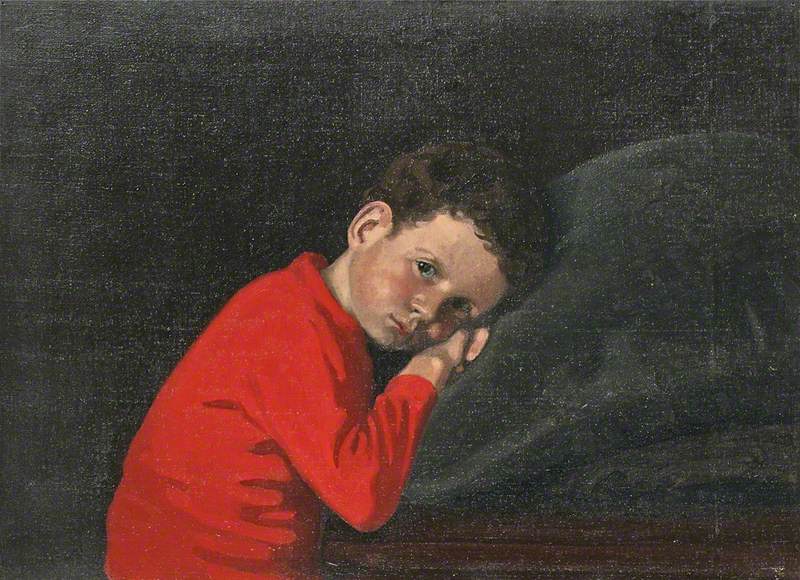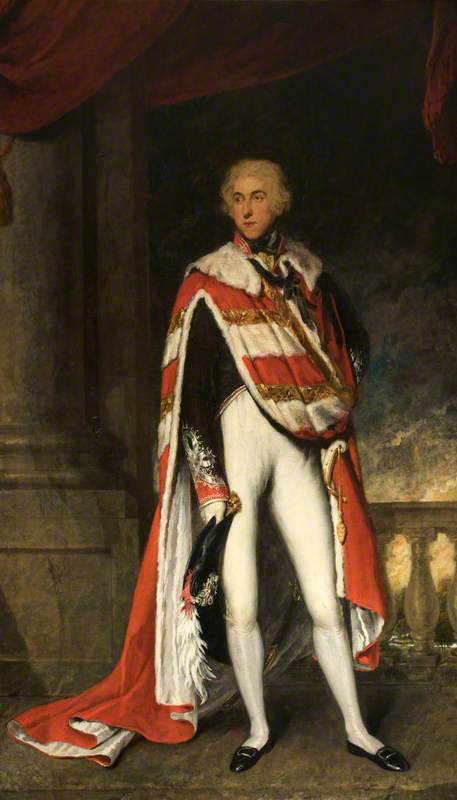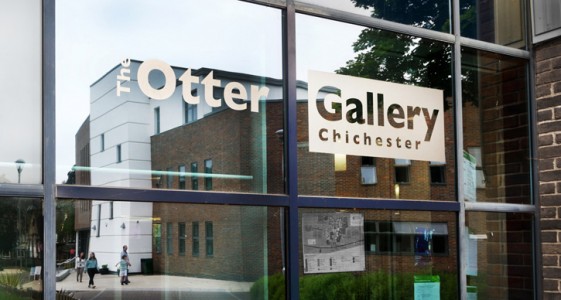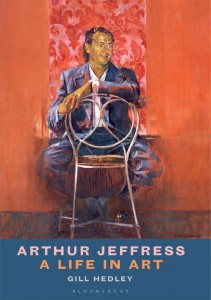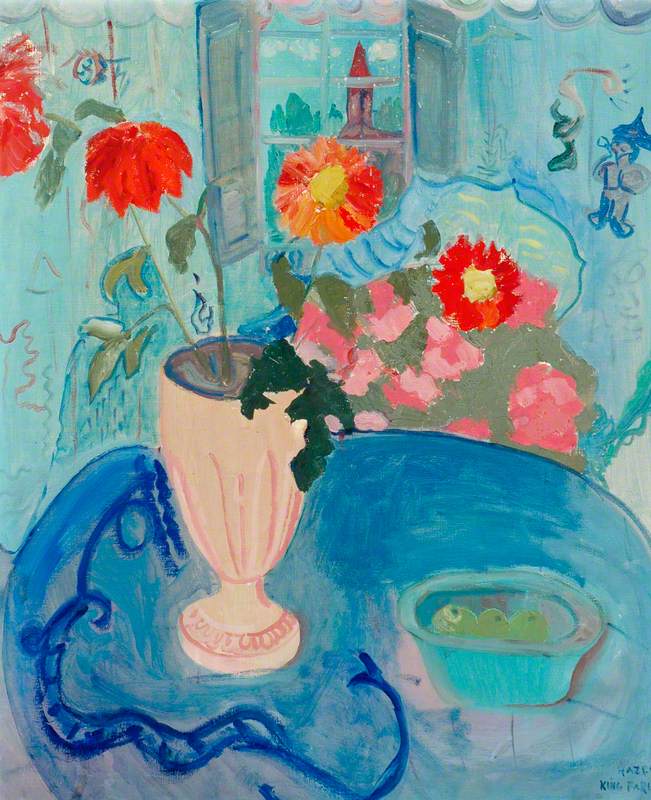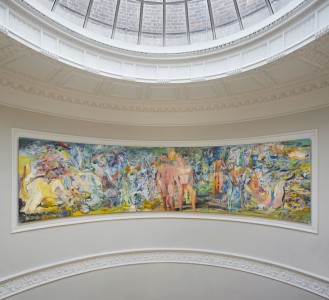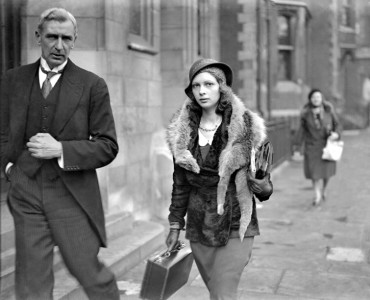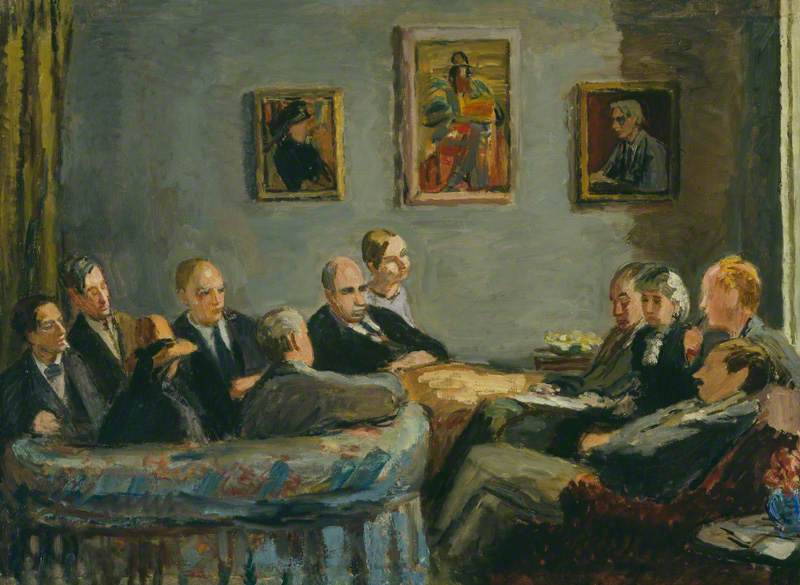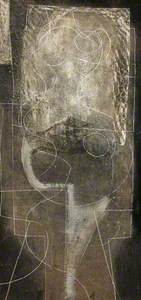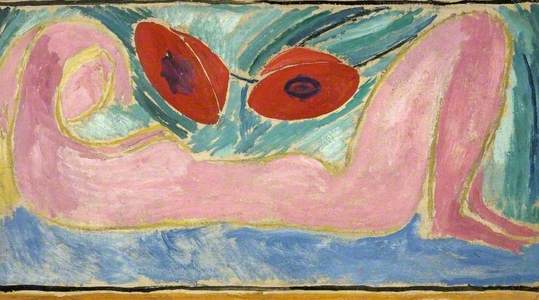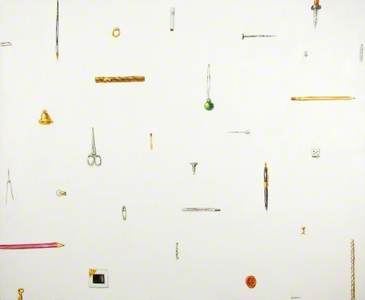Swindon's remarkable collection of modern art, representing major artists and movements in British art throughout the twentieth century, has its roots in a generous gift from H. J. P. 'Jimmy' Bomford, a stockbroker who lived in the rural village of Aldbourne in the Marlborough Downs.
Jimmy Bomford initially loaned Swindon Council his own collection of modern British paintings to hang in the new library, which opened after the Second World War. Shortly after the Arts Centre opened in 1946, Bomford walked into the Borough librarian's office and announced that he was giving these pictures to Swindon.
A highlight in Bomford's collection is one of Ben Nicholson's finest paintings 1933 (composition in black and white), created in the 1930s when Nicholson was moving his style away from figurative subject matter towards pure abstraction. At this time, Nicholson was making paintings that combined abstract geometric shapes with sinuous, wandering, incised lines.
From these auspicious beginnings, the collection continued to grow throughout the twentieth century and to the present day.
Vanessa Bell's Nude with Poppies was acquired in 1973. It was painted in a period when Bell was experimenting with simplified monumental forms. Following the second Post-Impressionist exhibition in London in 1912, Bell's work became increasingly abstract, returning to figurative forms, which continued to show a boldly imaginative use of colour.
Lisa Milroy's Small Objects, acquired in 1988, portrays memories of the qualities of the objects rather than the things themselves. She has said that she was investigating how to depict 'things that were very minimal in themselves, such as a needle and thread, and to see how few marks I could use to make something legible.'
Barbara Dixon, Manager, Swindon Museum and Art Gallery

